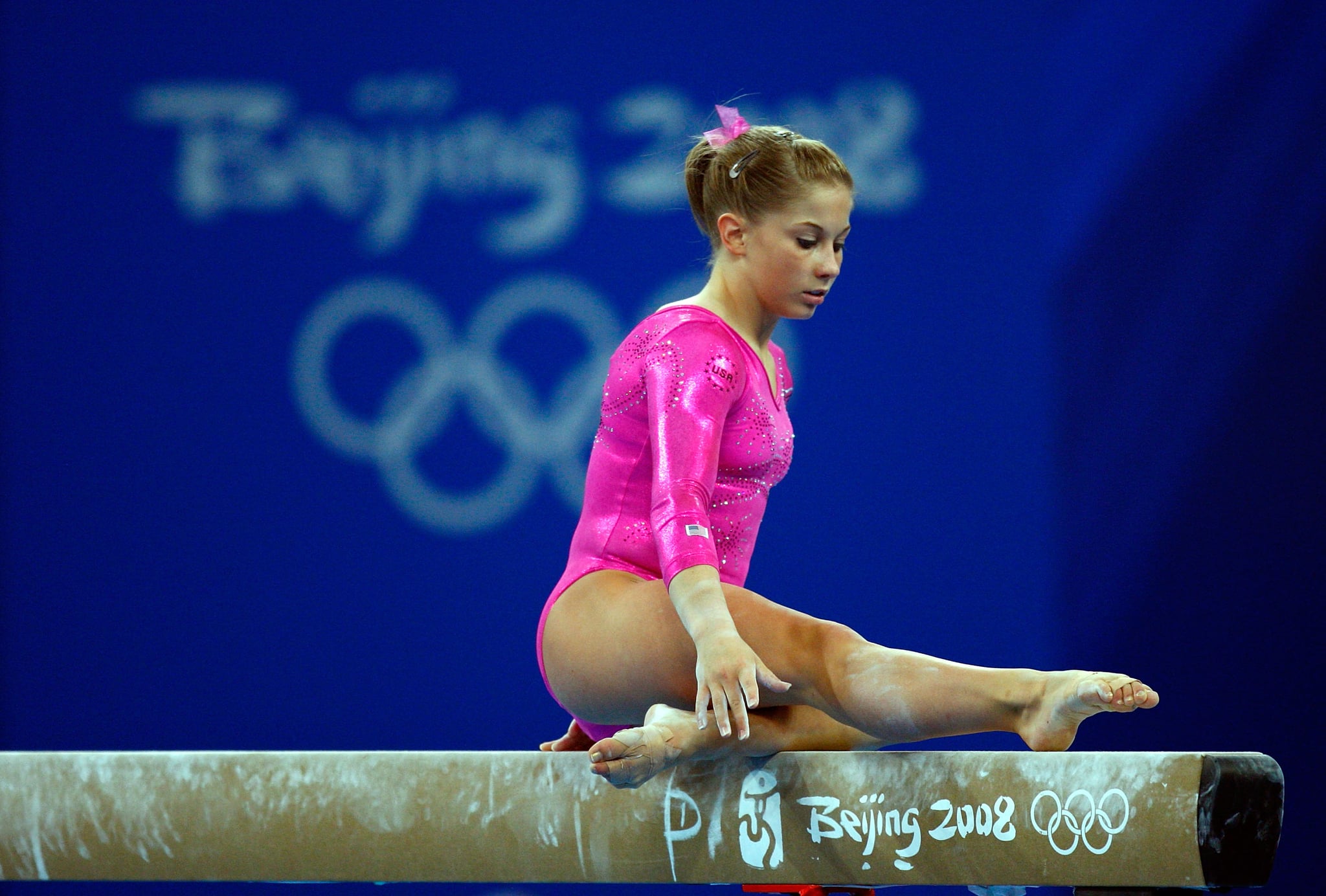
Image Source: Getty / Jamie Squire
In a new video posted on Shawn Johnson’s YouTube channel that she shares with her husband, Andrew East, the four-time Olympic medalist dove deep into her longstanding struggle with body image stemming from her gymnastics career. At the time she was training for the 2008 Beijing Olympics, Johnson said, she ate only 700 calories a day. “I would pass out during practice or after practice. My body would cramp. I didn’t have energy. I was unable to have a period. I wasn’t maturing,” she recalled.
An unhealthy relationship with food and the way you look is nothing new in the sport of gymnastics. It can affect any level and is driven by the fixation on the elusive concept of “perfect”: the perfect (and obedient) athlete, the perfect performance, the perfect body type. As a former gymnast who has struggled with body-image issues and bouts of disordered eating, I know just how cruel perfectionism can be physically and mentally. I also know that it spans across sports. But imagine the pressure I felt as a gymnast whose career stopped before college — then multiply it by 100 when you’re Johnson training for the Olympics.
Johnson now identifies her perfectionism as a “sacrifice” and a “cost” of the sport. “In gymnastics, because you are judged subjectively on the way you look, and mix that with being a teenage kid that didn’t know proper nutrition and psychology, I took that perfectionism and the elite mindset way too far,” she said, continuing on to say, “. . . if I couldn’t maintain perfection, I would go to any and all costs to achieve it.”
When you take a break from doing a sport that had you training nonstop to condition your body to flip and twist through the air — and you actually eat the way you’re supposed to be eating — you’re going to see changes to your body. And being in the spotlight after Beijing and competing in Dancing With the Stars, she said, only made matters worse.
“During this time, I had to deal with not being an elite athlete, not training 50 hours a week, eating more than 700 calories a day, which naturally would let my body adjust and gain weight — which was healthy at the time — but I didn’t know how to handle it,” Johnson said. “When I went on Dancing With the Stars and I had my period for the first time and I had to deal with going through puberty on national television, I had a very low spot.”
Johnson gained about 15 pounds after the Olympics and began taking pills to assist with weight loss and spike her metabolism (she named Ephedrine, Adderall, and diuretics) that, looking back, she realized did nothing. The fad diets she tried were also unsafe, she said. “I remember I went through a three-week phase where I ate nothing but raw vegetables,” she recalled, noting that she was in the worst pain of her life because she couldn’t digest anything.
Johnson has noted in the past that her history with eating disorders was never diagnosed, but it’s a long history at that — one she failed to unlearn when she tried for a comeback three years after the Beijing Olympics and fell into the unhealthy cycle of dieting and overexercising once again. She further discussed battling feelings of depression, what led up to her retiring in 2012, and how she finally began to accept the next chapter in store for her as well as her body.
It was only after Johnson’s retirement, when she hired a therapist and nutritionist, that she saw a turning point. Then, becoming a mother “served a purpose greater than anything I’ve ever done in my life” — and the tough experiences she went through during and post gymnastics have helped make her a stronger parent, she said. Watch the powerful video in full below.
